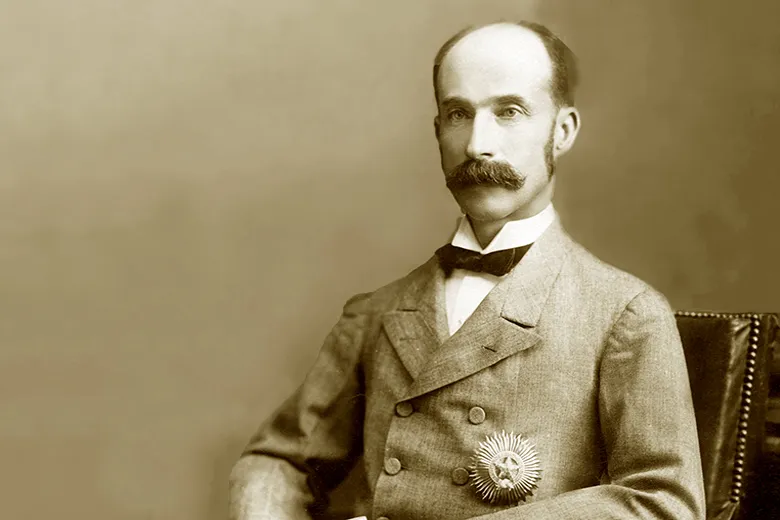mchec.org – Lord Lansdowne, born Henry Petty-Fitzmaurice, served as the Governor General of Canada from 1878 to 1883. His time in office came during a critical phase in Canada’s development as a self-governing nation within the British Empire. Lansdowne’s tenure saw the strengthening of Canadian unity, the promotion of national infrastructure projects, and the continued reconciliation between Canada’s diverse linguistic and cultural groups. Known for his diplomatic skill, calm demeanor, and commitment to fostering ties between Canada and Britain, Lord Lansdowne’s leadership left a significant mark on the young Dominion.
Early Life and Background
Henry Petty-Fitzmaurice was born on March 28, 1845, into a prominent British aristocratic family. He was educated at Harrow and Balliol College, Oxford, and after completing his education, Lansdowne entered British politics. He served in several political roles, including as a Member of Parliament and as Secretary of State for War. Lansdowne’s political career and experience in diplomacy positioned him well for the role of Governor General, a position that would require both political acumen and the ability to navigate complex international relations.
Before his appointment to Canada, Lansdowne was known for his dedication to the British Empire and his work in fostering good relations with colonies and territories. His reputation as a thoughtful and capable leader made him a natural choice to succeed Lord Dufferin as Governor General of Canada in 1878.
Appointment as Governor General
In 1878, Lord Lansdowne was appointed the 7th Governor General of Canada, succeeding Lord Dufferin. His appointment came during a period of national growth and consolidation, following the completion of the Canadian Pacific Railway and the establishment of the country as a self-governing Dominion within the British Empire. Lansdowne’s role as Governor General was symbolic of the British Crown’s continuing influence, even as Canada continued its path toward full autonomy.
Lord Lansdowne’s appointment coincided with a period of significant political stability in Canada. His leadership was seen as an opportunity to consolidate the gains made by previous administrations and to promote a sense of unity and national pride. Lansdowne’s diplomacy and gentle demeanor were well-suited to his role in Canada, where he was tasked with maintaining a balance between British imperial interests and the growing demands for Canadian self-determination.
Political and Social Challenges
During Lord Lansdowne’s tenure, Canada faced several key political and social challenges. One of the most prominent issues was the continued integration of French-speaking and English-speaking Canadians. Tensions between these two groups had been present since Confederation, and maintaining peace and harmony between them remained a critical concern.
Lansdowne worked to foster national unity and encourage greater cooperation between Canada’s French and English-speaking populations. His tenure saw the continuation of policies aimed at recognizing and preserving the cultural and linguistic rights of French Canadians, particularly in Quebec. Lord Lansdowne’s calm and conciliatory approach to governance helped alleviate some of the tensions that had persisted since Confederation and contributed to a stronger sense of national identity.
Another key challenge during his time in office was Canada’s growing economic ambitions. The completion of the Canadian Pacific Railway in 1885, just after his tenure ended, was a momentous event that helped unite Canada from east to west. However, Lansdowne’s administration focused on encouraging trade, improving infrastructure, and promoting Canada’s national cohesion through projects that laid the groundwork for future economic growth.
The Northwest Territories and Indigenous Relations
In addition to his role in fostering national unity, Lord Lansdowne also played a part in overseeing the development of Canada’s western territories. During his tenure, Canada began the process of settling and developing the vast western lands, which had previously been home to Indigenous peoples and the Métis population. While Lord Lansdowne’s time in office was marked by relative peace in the west, the establishment of law and order in these new territories was a significant concern.
Lord Lansdowne supported the ongoing expansion of Canada’s infrastructure in the western territories, including the settlement of Indigenous lands and the creation of the North-West Mounted Police. These efforts were vital for maintaining peace and facilitating the settlement of the western provinces. Although his role was more symbolic than executive, Lansdowne’s administration supported the policies that would later come to define Canada’s approach to the development of the West.
Contributions to Canadian Unity
One of Lord Lansdowne’s key contributions to Canada’s development was his ability to foster a sense of unity and national pride. His leadership helped further the process of reconciling Canada’s diverse regional and cultural communities. By encouraging policies that promoted respect for both French and English-speaking Canadians, as well as supporting infrastructure development that connected distant regions, Lansdowne helped to solidify Canada’s national identity.
Lansdowne was also known for his personal engagement with the Canadian people. Like his predecessors, he traveled extensively across Canada, visiting both major urban centers and remote regions. This commitment to understanding the country’s geography and people endeared him to Canadians and strengthened his role as a unifying figure in the young nation.
Conclusion
Lord Lansdowne’s tenure as Governor General of Canada (1878–1883) played a crucial role in the early years of the country’s development. His leadership helped to strengthen national unity, promote economic growth, and maintain positive relations between Canada and the British Empire. By focusing on diplomacy, infrastructure, and the recognition of Canada’s diverse cultural communities, Lansdowne left a lasting legacy on the country’s path to full autonomy. His calm, thoughtful approach to governance allowed Canada to continue its peaceful expansion and development, setting the stage for the future growth of the Dominion.

